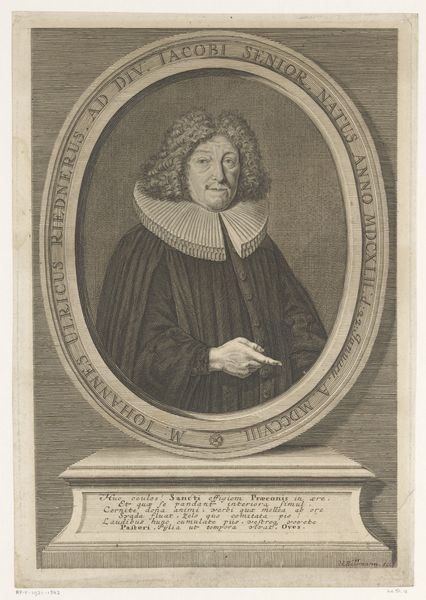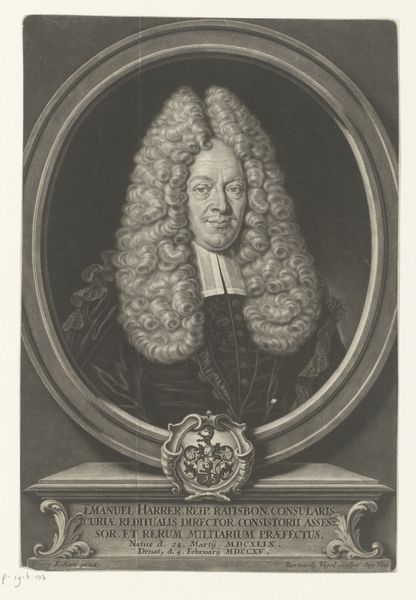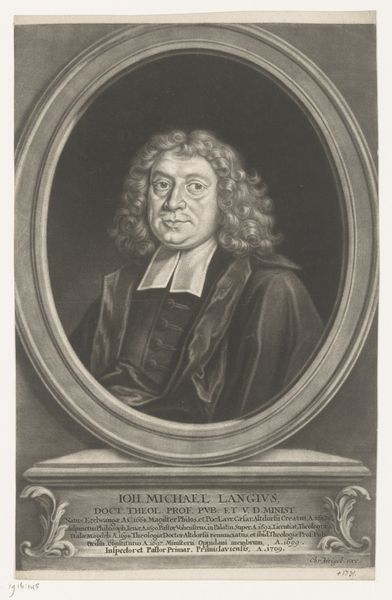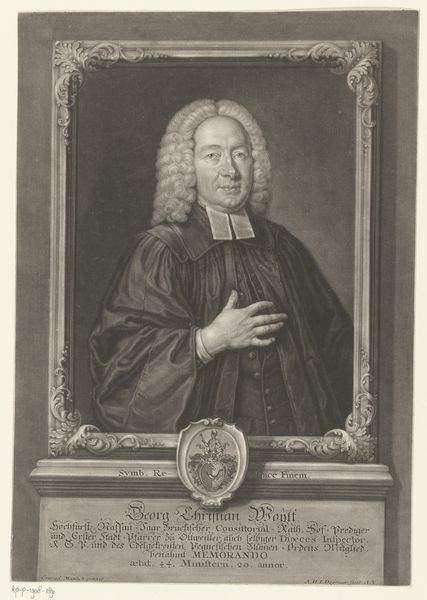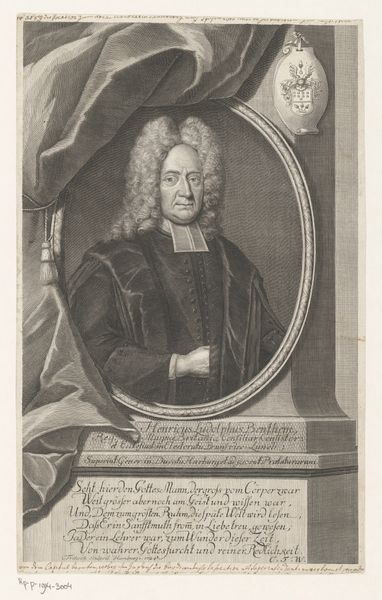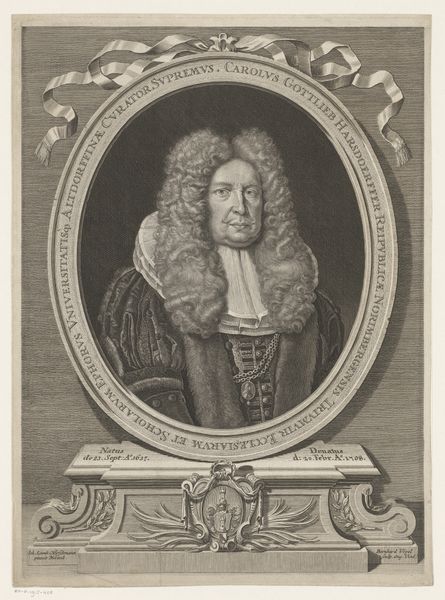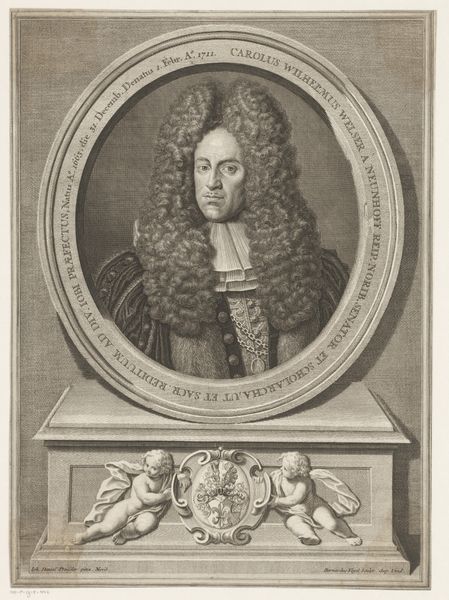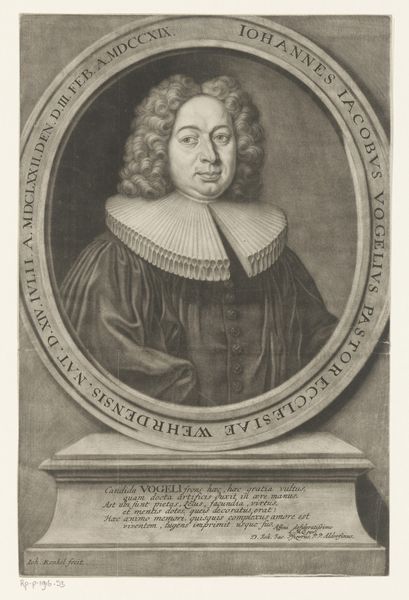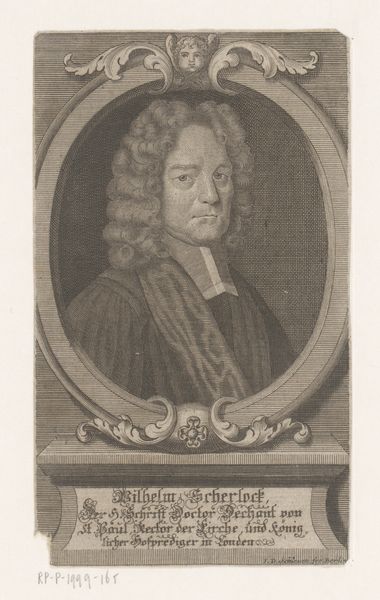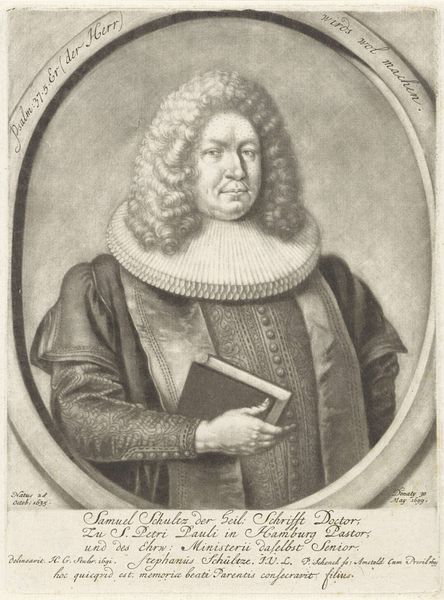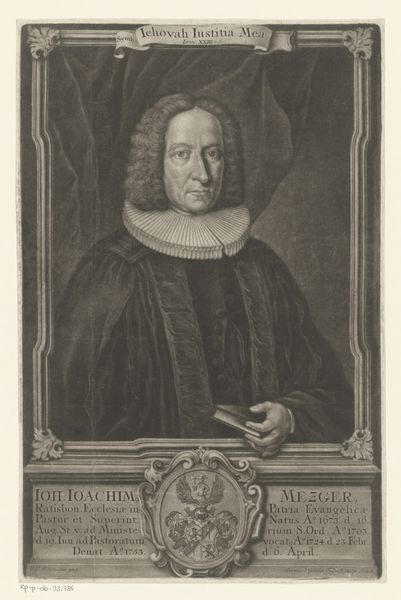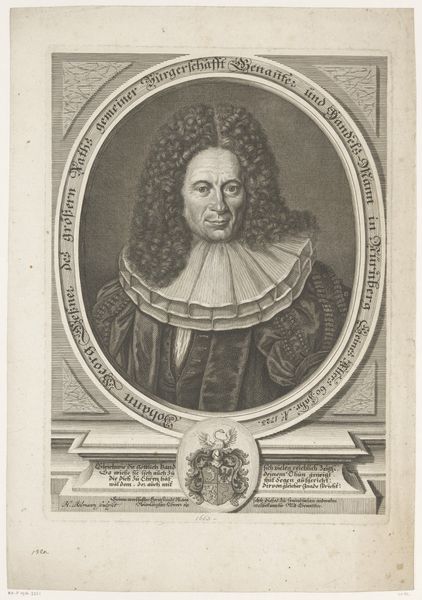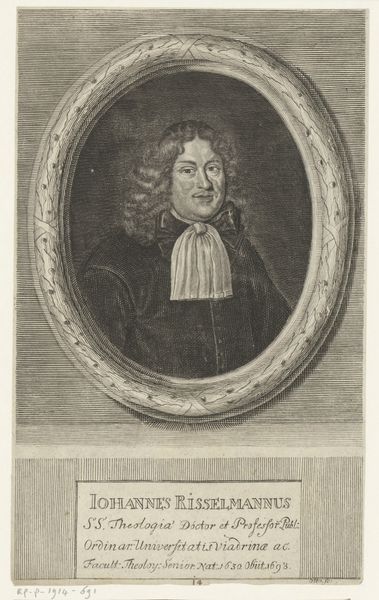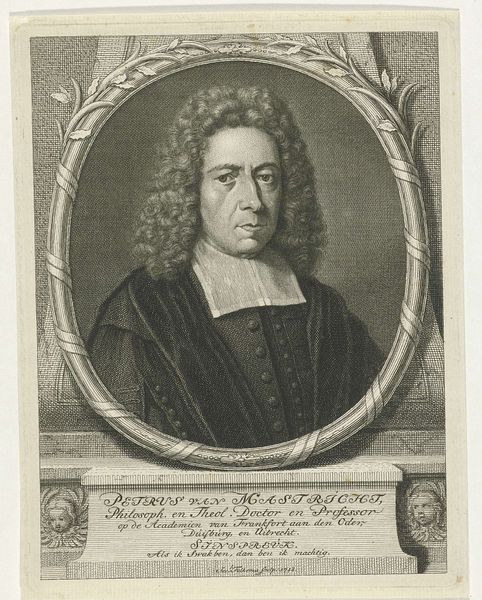
drawing, print, metal, intaglio, engraving
#
portrait
#
pencil drawn
#
drawing
#
baroque
# print
#
metal
#
intaglio
#
pencil sketch
#
old engraving style
#
charcoal drawing
#
pencil drawing
#
engraving
Dimensions: height 386 mm, width 253 mm
Copyright: Rijks Museum: Open Domain
Here we see “Portret van Gottfried Fuchs,” a print made by Christoph Weigel, an engraver active in Germany during the late 17th and early 18th centuries. This portrait offers a glimpse into the rigid social structures of the Holy Roman Empire. Fuchs, encased in an oval frame, is identified by his titles: “Pastor Primarius” and “Praeses Scholar.” His elaborate wig and formal attire speak to his status, literally framing him within the established hierarchies of church and scholarship. The detailed inscription below, though difficult to fully decipher today, underscores the importance of lineage and reputation in that era. Consider the power dynamics at play: Weigel, the artist, immortalizing Fuchs, the respected religious figure. Whose stories get told and how? Does this portrait reinforce existing power structures, or does it offer a more nuanced view of identity within the constraints of its time? Think about what this image conveys about the individual versus the roles they inhabit within society.
Comments
No comments
Be the first to comment and join the conversation on the ultimate creative platform.
